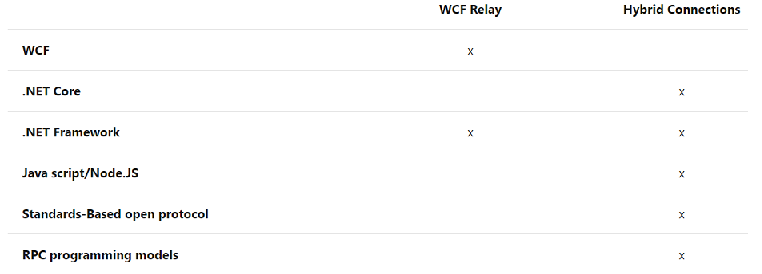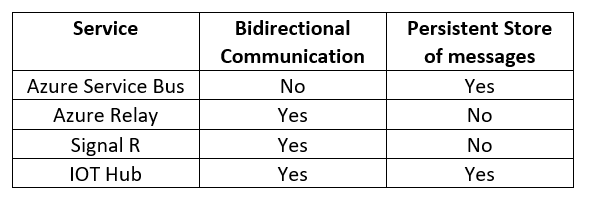Hi @RJBreneman
Microsoft Azure Service Bus Messaging (Queues and Topics) is a fully managed enterprise integration message broker. Queues and Topics provide unidirectional messaging. To facilitate bi-directional communication, Azure provides a Relay messaging service. You can use azure relay on any platform and in any language. Hybrid Connections feature in Azure Relay is based on HTTP and WebSockets protocols. It allows you to send requests and receive responses over web sockets or HTTP(S). This feature is compatible with WebSocket API in common web browsers. You can choose between WCF relay or hybrid connection on your particular needs.

You need to have your own business logic that will create unique hybrid connections and clients (assigned devices) connecting to them.
Once you create the hybrid connection you will get the unique endpoint and any client providing the right credential and endpoint details can connect to it.
You should have your own logic that tells the devices to which endpoint they need to connect.
You can go through below article to get more familiar with azure relay services:
Hybrid Realy vs WCF Relay: https://learn.microsoft.com/en-us/azure/azure-relay/relay-what-is-it#hybrid-connections-vs-wcf-relay
Hybrid Connection web socket: https://learn.microsoft.com/en-us/azure/azure-relay/relay-hybrid-connections-dotnet-get-started
Hybrid Connection Http Request:https://learn.microsoft.com/en-us/azure/azure-relay/relay-hybrid-connections-http-requests-dotnet-get-started
Receiving and handling HTTP requests anywhere with the Azure Relay: https://azure.microsoft.com/en-in/blog/receiving-and-handling-http-requests-anywhere-with-the-azure-relay/
Quota Limit : https://learn.microsoft.com/en-us/azure/azure-relay/relay-faq#quotas
Relay Sample: https://github.com/Azure/azure-relay/tree/master/samples
Updated:

Service Bus: Doesn’t support bi-directional communication. You need to have your own business logic creating different entities (queue/topic) to make it two-way communication. If there are many (ex 1000) subscriptions under topics along with different rules in each subscription for communication specific to each device then there will be high utilization of backend resource as topic tries to deliver a message to each subscription and according to subscription rule it will deny/accept that message. There could be other limitations of the number of subscriptions per topic you need to look into. The service bus provides you reliability and a persistent store of messages.
Azure Relay: It supports bi-directional communication and client/server need to be up and running for communication. There is some limitation that how many listeners that can be connected. The messages won't persist and can be lost if there is an issue with the mobile devices/offline etc.
Signal R: It supports bi-directional communication and client/server need to be up and running for communication. The messages won't persist and can be lost if there is an issue with the mobile devices/offline etc.
IoT Hub: It supports bi-directional communication, provides reliability and persistent store of messages.

